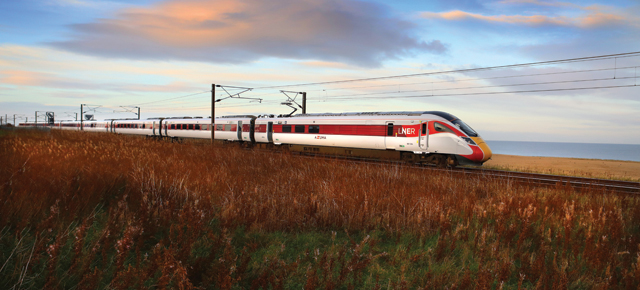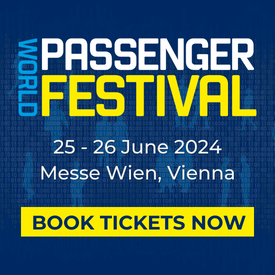LNER has plans to welcome even more customers back to rail and continue passenger growth

By David Horne
Figures published last week by the Office of Rail and Road showed that the number of passengers travelling by train on the East Coast route in 2022 was back to pre-pandemic levels. This is despite multiple days of strike action, and 10 days of major engineering work at Newcastle and further track upgrades at York, in the second half of the year.
As we mark in 2023 the centenary of the original LNER and its iconic flagship locomotive, “Flying Scotsman”, our route is leading the rail industry in recovering from the pandemic.
Indeed, over the six months between April and September including the summer period, we carried 6% more passengers than in the same months in 2019.
Growth in rail on the LNER route is not happening by chance – we have worked hard to attract customers to our trains
Growth in rail on the LNER route is not happening by chance – we have worked hard to attract customers to our trains. Over the past five years, substantial investment, both on track and train, has been taking place to welcome more customers back to rail. As the country went into lockdown in the first half of 2020, our engineers worked with Hitachi to bring the final batch of our world-class high-speed Azuma trains into service. During the third lockdown in 2021, Network Rail’s construction teams delivered incredible infrastructure projects as part of the £1.2bn East Coast Upgrade, adding capacity and improving reliability and punctuality on the route serving the East of England, Yorkshire and the North East.
More investment is on its way. Last June, the UK Government confirmed £1bn to revolutionise the East Coast Main Line by introducing digital signalling. The new technology continuously communicates with each train, providing signalling information directly to a computer screen in the driver’s cab. It boosts reliability, reduces carbon emissions and provides a more punctual service for our customers.
But it is not just about trains, tracks and technology. LNER has been leading the industry in attracting even more customers back, inspiring people to discover the joy of rail travel, while innovating and investing to further enhance the customer experience – last October we opened our Family Lounge at King’s Cross station in a UK industry first.
Despite what you may have read, the death of the restaurant car is a myth. We love working with our local suppliers like family-run Beckleberry’s in Blaydon and The Original Baker in Malton, Yorkshire and we’ve brought new products to our on-board menus, served at your seat by our passionate team.
We’re making rail ticketing simpler and easier too. In an industry first, customers can now book six months in advance; ensuring people have confidence when travelling by guaranteeing a seat for the duration of their journey; and making fares simpler, smarter and more flexible by trialling pioneering fares reform.
We are regularly seeing 50% more passengers travelling on Sundays than in pre-Covid times – so we have submitted proposals to the Department for Transport to run additional services on Sundays
These reforms have been incredibly popular and central to our growth. It is not only a strong recovery we have seen, but also a shift in who is travelling. We are regularly seeing 50% more passengers travelling on Sundays than in pre-Covid times – so we have submitted proposals to the Department for Transport to run additional services on Sundays. We also are in discussions with Network Rail to move engineering work away from weekends, which are now busier than ever.
Attitudes towards flying have changed too. Since the pandemic, our customers are more environmentally conscious, choosing rail as the sustainable mode of transport. This explains why LNER, by itself, is the main mode of transport between Edinburgh and London with more than 50% of the market (before Covid LNER only had 35% modal share) travelling on our electric trains.
We also know that because of the investment made by the UK Government and ourselves to enhance the travel experience, we will continue to attract even more customers onboard. The collective long-term thinking and vision to grow rail on the East Coast means we now have the capability to use available capacity to deliver even more LNER services – welcoming an extra 9,000 customers each day. To do that all we need is a transformational timetable uplift – one that will grow rail, connecting cities, towns and communities, boosting LNER’s £2bn economic impact up and down the country.
ABOUT THE AUTHOR: David Horne has been Managing Director of LNER since its inception in June 2018. He has held senior positions with several train operating companies including Managing Director of East Midlands Trains from 2011 to 2015, and Virgin Trains East Coast from 2015 to 2018.
This article appears in the latest issue of Passenger Transport.
DON’T MISS OUT – GET YOUR COPY! – click here to subscribe!








